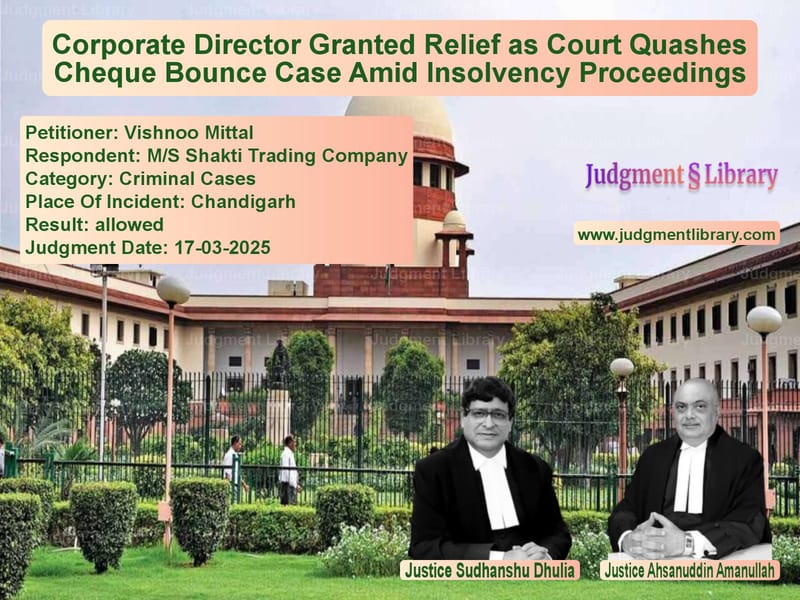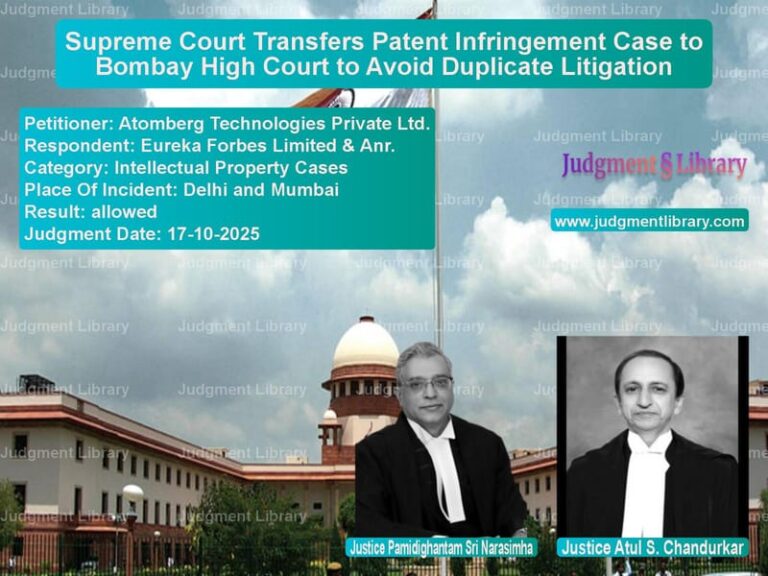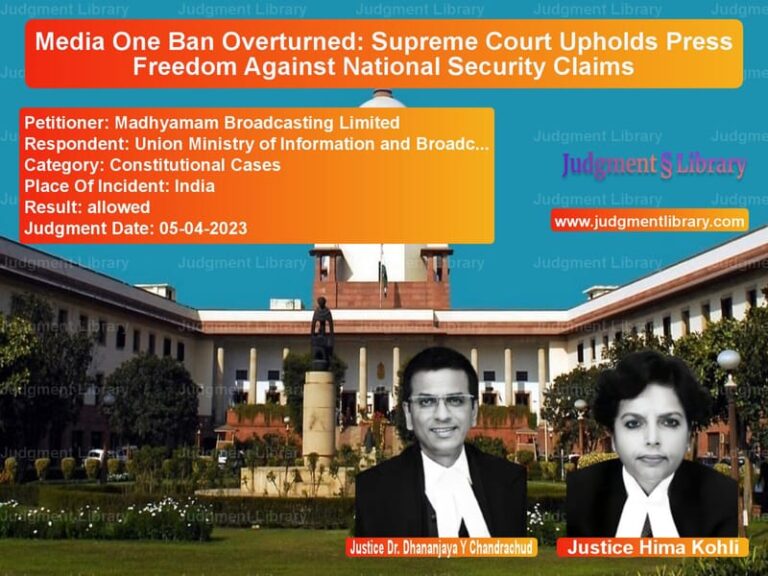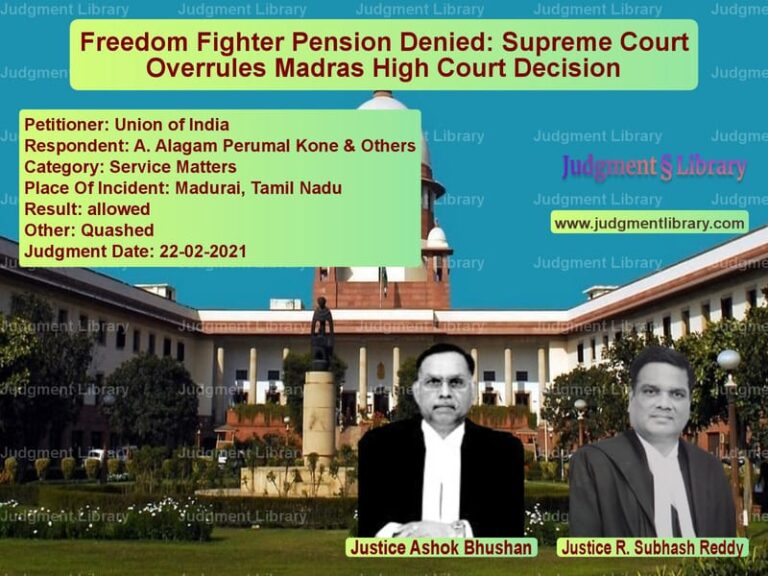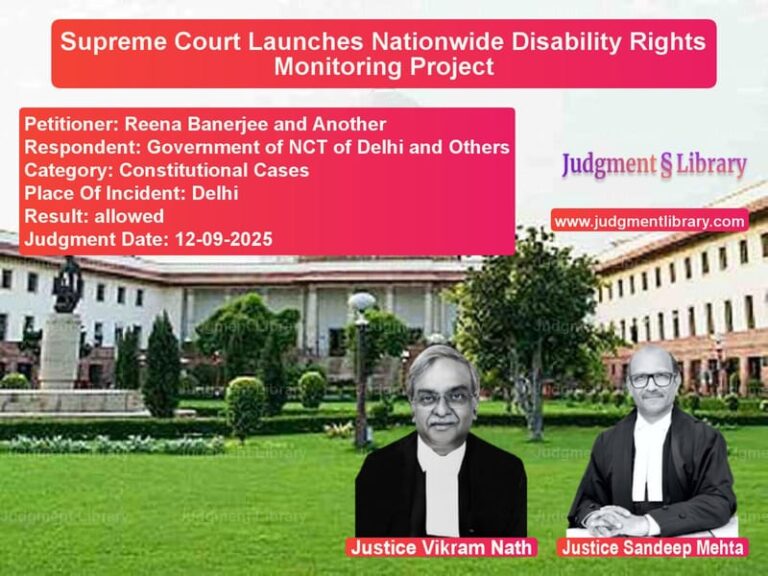Corporate Director Granted Relief as Court Quashes Cheque Bounce Case Amid Insolvency Proceedings
The Supreme Court of India, in a recent judgment, quashed criminal proceedings against Vishnoo Mittal, the director of M/s Xalta Food and Beverages Private Limited, in a cheque bounce case under Section 138 of the Negotiable Instruments Act, 1881 (NI Act). The case, initiated by M/s Shakti Trading Company, was dismissed as the Court ruled that insolvency proceedings under the Insolvency and Bankruptcy Code, 2016 (IBC), protected the appellant from such liabilities.
Background of the Case
Vishnoo Mittal, in his capacity as director of Xalta Food and Beverages, had issued eleven cheques totaling Rs. 11,17,326/- in favor of M/s Shakti Trading Company. On July 7, 2018, these cheques were dishonored due to insufficient funds. The respondent sent a legal notice under Section 138 of the NI Act, but payment was not made. Subsequently, the respondent filed a criminal complaint against Mittal.
Meanwhile, on July 25, 2018, the National Company Law Tribunal (NCLT) admitted an insolvency petition against Xalta Food and Beverages, imposing a moratorium under Section 14 of the IBC. This meant that all proceedings against the company were stayed, and an Interim Resolution Professional (IRP) took over its management.
Petitioner’s Arguments
Mittal contended that the moratorium barred legal proceedings, including Section 138 NI Act complaints. His arguments were:
- Since the moratorium under Section 14 of the IBC began before the cause of action under Section 138 of the NI Act was completed, the proceedings should be quashed.
- The cheques were dishonored on July 7, 2018, but the legal notice was issued on August 6, 2018, after the moratorium had begun.
- Once the IRP was appointed, the board of directors was suspended under Section 17 of the IBC, meaning Mittal had no control over company affairs or the bank accounts.
- The creditor had already filed a claim with the IRP, making criminal proceedings redundant.
The petitioner’s counsel argued, “The appellant was legally incapacitated from making payments once the moratorium was in place. Any proceedings under Section 138 of NI Act would violate the IBC framework.”
Respondent’s Arguments
M/s Shakti Trading Company opposed the petition, arguing:
- The moratorium under Section 14 of IBC applied only to the corporate debtor (Xalta Food and Beverages) and not to its directors.
- Relying on the judgment in P. Mohan Raj v. M/S Shah Brothers Ispat Pvt. Ltd., the respondent contended that personal liability under Section 138 NI Act was distinct from corporate liability.
- Despite insolvency, the director remained liable for financial obligations.
The respondent’s counsel stated, “The moratorium shields only the corporate entity. Directors cannot use it as a defense to escape liability under the NI Act.”
Supreme Court’s Ruling
The Supreme Court, comprising Justices Sudhanshu Dhulia and Ahsanuddin Amanullah, ruled in favor of Mittal and quashed the proceedings. The Court made key observations:
“The moratorium under Section 14 of IBC stays all legal proceedings against the corporate debtor, but in the present case, the cause of action itself arose after the moratorium was imposed.”
The bench further distinguished this case from P. Mohan Raj:
“Unlike in Mohan Raj, where the cause of action had already arisen before the moratorium, here, the notice under Section 138 NI Act was served after the insolvency proceedings had commenced. The appellant was not in control of the company’s affairs, and therefore, could not have complied with the demand notice.”
Key Legal Takeaways
- Moratorium Protection: The Court clarified that if a corporate entity enters insolvency before a Section 138 case is triggered, the proceedings against its directors can be quashed.
- Control of Finances: Since the IRP assumed control under Section 17 of IBC, the director could not be held liable for non-payment.
- Priority of IBC Over NI Act: The ruling reaffirmed that insolvency proceedings take precedence over cheque dishonor complaints if the cause of action arises post-moratorium.
Final Judgment
The Supreme Court set aside the Punjab and Haryana High Court’s ruling and quashed the Section 138 complaint. The Court stated:
“We allow this appeal by setting aside the impugned order dated 21.12.2021 and quash the summoning order dated 07.09.2018. Further, we hereby quash the complaint case no. 15580/2018, pending before the Chief Judicial Magistrate Court, Chandigarh.”
With this judgment, the Supreme Court has provided clarity on the applicability of IBC moratoriums in criminal proceedings under the NI Act, reaffirming that corporate directors cannot be prosecuted for non-payment if the company is under insolvency resolution.
Petitioner Name: Vishnoo Mittal.Respondent Name: M/S Shakti Trading Company.Judgment By: Justice Sudhanshu Dhulia, Justice Ahsanuddin Amanullah.Place Of Incident: Chandigarh.Judgment Date: 17-03-2025.
Don’t miss out on the full details! Download the complete judgment in PDF format below and gain valuable insights instantly!
Download Judgment: vishnoo-mittal-vs-ms-shakti-trading-c-supreme-court-of-india-judgment-dated-17-03-2025.pdf
Directly Download Judgment: Directly download this Judgment
See all petitions in Fraud and Forgery
See all petitions in Money Laundering Cases
See all petitions in Bail and Anticipatory Bail
See all petitions in Judgment by Sudhanshu Dhulia
See all petitions in Judgment by Ahsanuddin Amanullah
See all petitions in allowed
See all petitions in supreme court of India judgments March 2025
See all petitions in 2025 judgments
See all posts in Criminal Cases Category
See all allowed petitions in Criminal Cases Category
See all Dismissed petitions in Criminal Cases Category
See all partially allowed petitions in Criminal Cases Category

